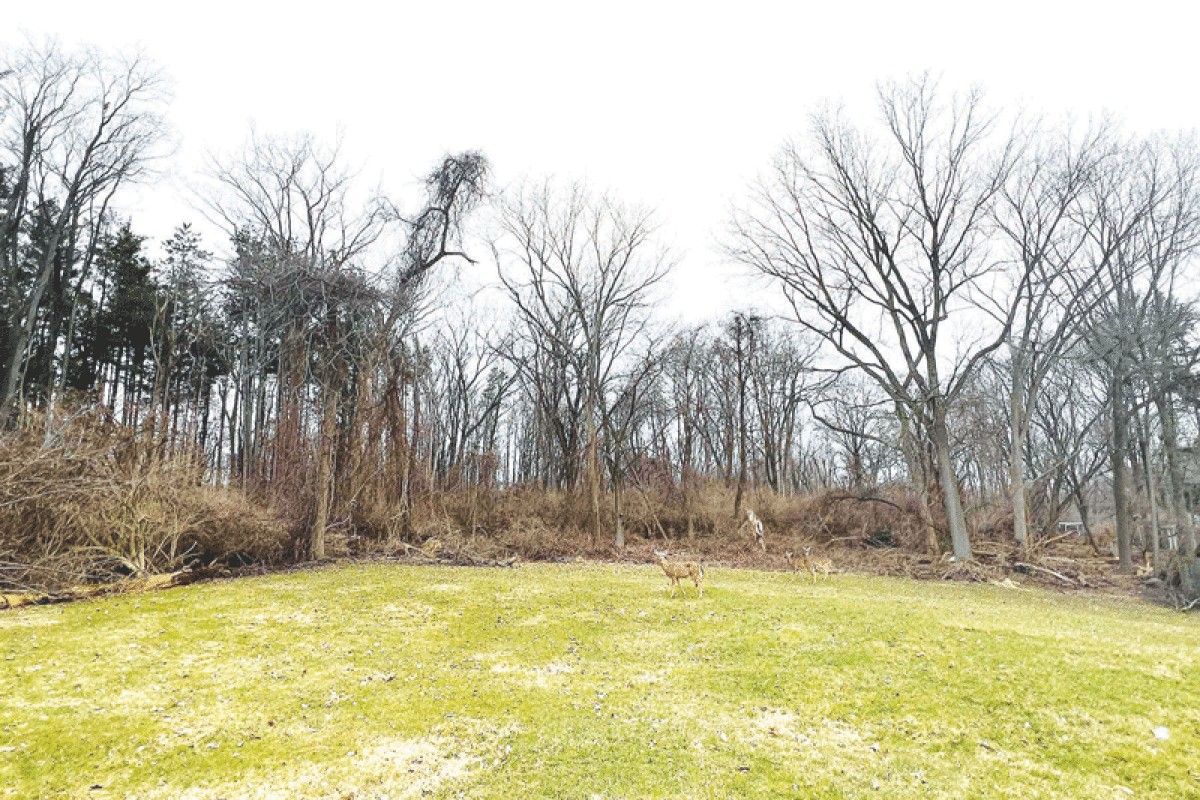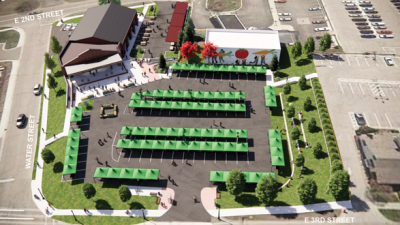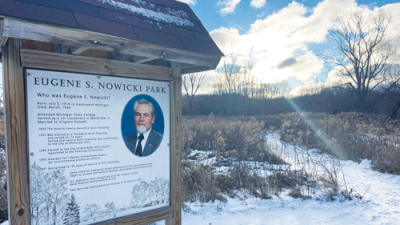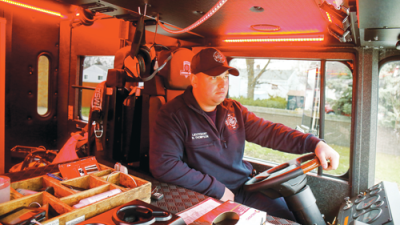ROCHESTER HILLS — The city of Rochester Hills is hoping to acquire a 9.38 acre undeveloped property at 694 S. Rochester Road.
The Rochester Hills City Council unanimously voted to send a grant application to the Michigan Department of Natural Resources Trust Fund asking for funding to help secure the land, adding more green space to the city.
“We’re quite excited about this,” said Ken Elwert, the director of parks and natural resources for the city. “It’s been quite a while since we have put in a trust fund grant like this.”
The property is one of few remaining undeveloped parcels with Rochester Road frontage, according to city Natural Resources Manager Matt Einhauser, who said it also has pedestrian connections to both Rochester Hills and downtown Rochester.
“It would act as a potential trail corridor that would eventually link up to the Clinton River Trail itself, providing a pretty unique connection from the Rochester Road frontage to the trail,” he explained.
The land itself currently includes forests and sensitive steep slopes that are located directly adjacent to an existing 12.7-acres of city green space bordering the Clinton River.
“The property has some really nice natural features on it, including some steep slopes and some really nice ravines and ridges that are pretty rare to the area,” Einhauser explained. “This is a really important property to try to protect, because a lot of stormwater and water passes through this property to get to our Cloverport Green Space and the floodplain and, ultimately, the Clinton River.”
The city hopes to transform the property — which was once an old bee farm — into a trailhead of sorts, with access to the city’s Cloverport Green Space and the Clinton River Trail.
“The intention is to honor the history of the beekeeper, if you will, in the front part of the property, with perhaps a small arbor structure or other items,” Elwert said.
The combination of mature trees, the topography and the surrounding green space on the property would provide the public with scenic views and valuable passive recreational opportunities, according to city officials.
Thanks to a partnership with Rochester University, the city hopes to create a trail connection to the Clinton River Trail through Lake Norcentra Park at the university.
“They are very supportive of that possible connection, not only for people to use this, but of course, their students as well,” Elwert explained.
By creating a parking lot on Rochester Road, the property would also allow fishermen to access the Clinton River through the already city-owned Cloverport Green Space.
“This would be a fairly visible access point on Rochester Road, one of the main roads in our city,” said Rochester Hills City Council President Ryan Deel.
Rochester Hills City Councilman Dave Walker said that anytime more green space can be added to Rochester Hills, it’s a “win for the community.”
“I hope (the grant) does come down in our favor and we can put this together,” he said. “It’s a great location.”
The city is requesting that the state supply it with just over $1.3 million in grant funding toward the total estimated cost of just over $2.8 million. The grant requires a minimum 25% commitment of matching funds by the city, but Elwert said the city is proposing a 51% match, in the amount of $1,425,000, in order to achieve the maximum possible score in the competitive grant process.
“The price we have put into this is based on an appraised value that we got from a professional assessor, according to DNR standards. I don’t know all the technical details, but that is a bit different than market value on that, because they are assuming sort of an outdoor recreation purpose,” Elwert explained.
Where the city will come up with the funding, Councilwoman Theresa Mungioli said, is still a matter of budget discussion in August, or other funding opportunities that are available through the city’s budget. If the city does end up purchasing the property, Mungioli wants to assure residents it will be “protected in perpetuity.”
“When we come back next year, after successfully getting the grant — because our 28-page grant application … it’s impressive — I will want to hear the story about how we are going to find the $1.4 million in our budget and make sure that that beautiful piece of property is protected in perpetuity and that we can’t decide in a moment of financial stress, years down the road, that we can sell it,” she said.
By late summer, the city will likely have “an informal feel” of where the project will fall within the competitive grant process, Elwert explained.
“The formal final decisions are made in early December at the Michigan Natural Resources Trust Fund board meeting, which usually occurs the first or second week of December. From there, then, the estate typically, but not always, will send a project agreement to us within a month or two after that — but the Legislature typically has to appropriate the funds first, and it doesn’t always happen as quickly in some years as it does in others,” he explained. “Normally, January or February of 2024 would be when we would see the project agreement come back from the state, if we get the grant.”
For more information, visit rochester hills.org or call the city at (248) 656-4600.
 Publication select ▼
Publication select ▼














